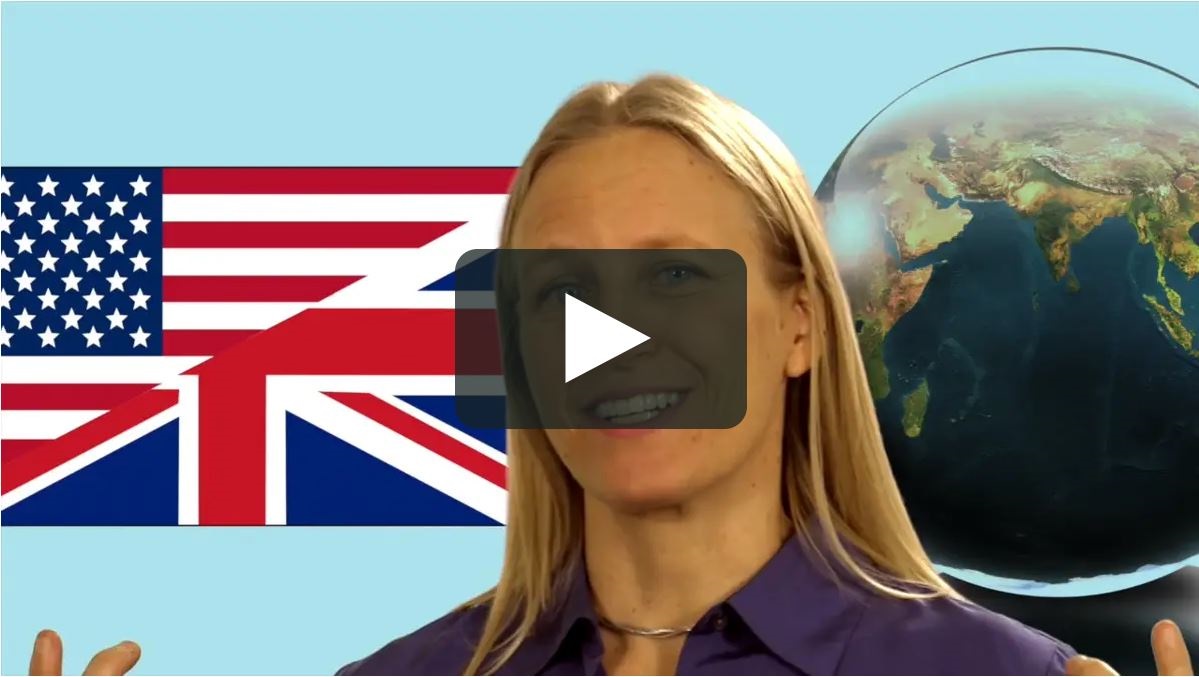This video is on Vimeo. To watch it, you must confirm that the data is loaded from external servers. Personal data (e.g. your IP address) is transferred to these external servers.
MOOC Power Up: English for the Energy Transition. Be understood - be powerful. 2nd Edition
The climate change and the shortage of the fossil resources are energy-related topics that lead to discussions about the energy supply of the future: on a local and on a global level, in professional and in private contexts. Following the catastrophe in Fukushima the awareness for the necessity of discussing increased. In Germany, the reaction resulted in the so-called "Energiewende" - the energy transition.
While English - as lingua franca - cannot solve the problems of energy supply, it can at least aid finding the right words when talking about finding a solution. Within the wide field of energy, this MOOC focuses on the topics closely related to energy transition. However, it will not give a deep insight into the technical terminology of a power plant.
This video is on Vimeo. To watch it, you must confirm that the data is loaded from external servers. Personal data (e.g. your IP address) is transferred to these external servers.
The MOOC is offered by InnoEnergy, the European company for innovation, business creation and education in sustainable energy and was produced by the Center for Technology-Enhanced Learning (ZML) at Karlsruhe Institute of Technology (KIT).
Who can participate?
This course is aimed at professionals and students with previous English knowledge, interested in refreshing their language skills and learning the most important vocabulary from the energy world, especially the topics connected to the energy transition. The course is especially suitable for those who would like to push their international career in the energy sector and those who would like to brush up their language skills.
What do I need to know?
Some prerequisite knowledge is required: English level at A2/B1 or above according to the Common European Framework of Reference for Languages (CEFR)
No particular knowledge is required on the topic of Energy.
What will I learn?
The overall course objective is to acquire a sound basis in the necessary vocabulary for communicating about topics concerning the energy transition. The aim is for students to both understand and be able to use this vocabulary in context. The quantifiable goal is the acquisition of between 20-30 vocabulary words per week.
You will be trained in the passive skills of listening and reading comprehension as well as the active skill of writing when discussing in the forum or completing exercises. After completion of this MOOC the participants shall be supplied with the solid basic vocabulary to follow and participate in discussions on the above mentioned topics in private as well as in professional contexts, to understand texts or videos on energy transition. These discussions could be in a business context e.g. negotiation with an international partner, or with a political background.
course structure
The course consists of six modules.
Module 1: Introduction
An introduction to the energy transition and its vocabulary: what it is, and why it's necessary. What does our current infrastructure look like, and how is it changing? A look at the concept of moving away from fossil fuels and towards renewable and sustainable energy sources. How is power generated, and how is it priced?
Module 2: Renewable Energy
How do we generate sustainable power? Focusing on the current mature renewable technologies available: wind, solar (PV and CSP), geothermal, biomass (thermochemical and biochemical conversions), and hydro (dam and ROR) The essential vocabulary for each technology will be covered.
Module 3: Transmission and Distribution
How does power get from where it is generated, to where it is consumed? An examination of our current infrastructure and the importance and challenges of keeping the power grid balanced. introduction to the next generation of infrastructure: smart grid technology - what it is, and the fundamentals of how it works.
Module 4: Storage
How can we integrate renewables into the existing energy infrastructure? the current system is demand-oriented; renewables are inherently supply-driven. one key way to bridge this gap is by using energy storage. this is an overview of the most promising technologies currently available (pumped-storage hydro, batteries, compressed air, thermal energy storage, power-to-gas methane synthesis).
Module 5: Efficiency and Usage
The two pillars of the Energy Transition are sustainable energy and energy efficiency. without efficiency, energy demand continues to grow unchecked and the transition will fail. this unit focuses particularly on energy use/consumption in buildings, and the enormous role human behaviour plays in efficiency and the reduction of energy demand.
Module 6: Future of Energy
Research in sustainable energy and energy efficiency continues to advance - what are some potential untapped sources of energy? what are the effects the technologies of today will have on the future? how can renewable energy improve energy access and energy equality in a world of ever-growing energy demand?
duration and cost
The online course has a duration of six weeks.
For participation in this course a fee of 69 EUR is charged.
next run
Start: October, 17th 2017
Registration
If you want to enroll for this MOOC please visit the course room on ISE.


